|
I was recently interviewed for a sweet podcast series, supporting the Alternative Education Resource Organization (AERO)'s overall Education Revolution.
I had a wide-ranging chat with Jerry Mintz on my adventures so far; what I've seen, learned, and how there is hope for these ideas in public school systems as well. You can listen to the podcast below; hope this is insightful for some of you!
0 Comments
Recently, I’ve been hearing about Rumie.org from mentors and students, and decided to learn more! Rumie is a Toronto-based non-profit tech startup founded by Tariq Fancy, leveraging a crowdsourcing model to provide free e-learning on small tablets for underserved communities. . Although “ed tech” has been gaining momentum in recent years, the use of tech for educational access isn’t actually so novel. Models such as One Laptop Per Child (OLPC) and Sugata Mitra’s School in the Cloud (which I’ve posted about here and here), were inspired by a similar vision ahead of the ed tech craze. However, OLPC for one, had high costs of hardware (closer to $200 per tablet) and implementation, and little by way of tangible results. But as Founder Tariq Fancy points out in this post, with technology (as with anything!), timing is everything: OLPC was a noble effort, but it was an idea before its time. In technology, timing is everything... In addressing the challenge of sourcing relevant content, Rumie's LearnCloud platform is available for educators worldwide to contribute open access K-12 resources across subject areas. I participated in a #LearnSyria webinar with Rumie a few weeks ago, which introduced the platform for us to play around in, as well as a current campaign to support learning in Syrian refugee camps through Rumie tablets. Just as dispersed volunteers online created Wikipedia, the world’s largest encyclopedia... the LearnCloud’s fast-growing volunteer community of teachers, subject area experts, and skilled practitioners is building the world’s largest repository of free learning content online. - Tariq Fancy At a time when we face crises of displacement and resettlement, and with continued issues of educational access, the Rumie model does feel promising to address part of the opportunity gap.
In my next post, I look forward to sharing a Q&A with Deanna Del Vecchio, Head of Partnerships at Rumie. Follow Rumie on Twitter: @RumieInitiative Check out their website: rumie.org
As I come to the end of a year of exploration and self-directed research, I feel overwhelmed yet hopeful, thanks to all the ideas I have now seen in practice. These ideas include: individualized higher education; outdoor education; systems and critical thinking; arts as empowerment; redefining "success"; purposeful technology use; marginalized youth as community leaders; and enabling learners to direct more of their learning.
In trying to combine my research 'highlights' with my own vision for future learning, I began building a framework to facilitate the design of emerging programs. Inspired by the Business Model Canvas, I call it the "EduModels Canvas", a strategy tool to help us think about both the big picture and the details involved in redesigning learning programs.
Along with inspiring a new, more systematic approach to designing programs, my other hope is that we are able to improve existing school systems, using some of the principles I observed this past year.
These principles, as well as a quick explanation of the "EduModels Canvas", are outlined in this final section of my talk from AERO 2016: What Next? (Part 5 of 5) from edumodels on Vimeo.
Thanks for your continued interest and support throughout this project. Special thanks to all of the educational innovators who graciously shared their lives, work and visions with me throughout this past year - you have inspired me to continue my own work.
I look forward to continuing to share the Educators Who Inspire video series, and to collaborating with some of you in spaces of innovation and educational access!
The final lesson I learned over the past year of school visits and interviews focused on the unique set of challenges and strengths each model faced. Being clear on these strengths and challenges, is critical to improving programs.
Transparency around the uniqueness of each model also allows us to understand differing priorities, while acknowledging common factors that do exist in innovative alternatives (which I'll get to in my post next week!)
Here is this quick lesson shared at the AERO conference:
In Portland, Oregon last week, I had the pleasure of presenting at AERO 2016 (more to come on that!).
My favourite part of these conferences is the unique connection I find with individuals. One such individual was Tyler Barley, a young man in an innovative degree program at RIT (Rochester Institute of Technology), New York. Connections and Colonization During an early Q&A on day 1, Tyler expressed a powerful insight, questioning who the faces were leading "progressive" programs for Aboriginal youth. He pointed out the need to address the imbalances that continue from times of colonization. He was by far the most refreshing voice in this room of educators, parents, students and academics. I remember thinking, "Whoa. Who is this guy? And why isn't he up here giving a talk?!" Later on, I sat outside with Tyler and Wendy (an Academic Advisor from the School of Individualized Study (SOIS) at RIT). We ended up chatting through an entire workshop slot, about everything from his earlier comments, to the resilience of young people, and the power of Nature. Individualized Learning Since I started lecturing in 2011, I've been thinking about the potential for more individualized learning in higher ed, mainly because I've experienced how uninterested many students can be in standard programs. (I used to ask students on Day 1, "Why are you taking this course?", hoping to hear about their interests. The most common response I would get though, was "'Because we have to!!") The program Tyler is in through the SOIS on the other hand, allows the learner to tailor the subject areas in their program, leading to a unique and specialized interest area. Other Applications? This program reminds me of liberal arts programs that friends have taken at the Master's level, At the undergrad level though, I would love to see and help design more of these offerings, where students who have a specific interest area / key question / challenge they wanted to address, could tailor their studies accordingly. Of course, foundations courses in many fields can be useful, but the ability to weave in more catered combinations of courses feels like the way of the future (/present!) in my opinion. Check out the quick video above, featuring the stories of SOIS and Tyler. Thanks to Tyler and Wendy for sharing their time with me in Portland!
I am pleased to introduce you to Juan Camilo Cardenas, Associate Professor in the School of Economics at Los Andes University, Bogota. Juan Camilo is a leader in the field of Experimental Economics in Latin America, and has been a Fulbright Scholar and visiting scholar at Harvard University. His research has focused on human behaviour in solving social dilemmas, and he brings his experimental approach in these areas into the classroom with his students.
Juan Camilo fit me in for a meeting after his class one afternoon on the beautiful Los Andes campus. He gave me a tour of campus as well, with students gathering on campus to watch an important futbol match for Colombia. After having a quick coffee, Prof. Cardenas graciously allowed me to interview him despite having another meeting to run to - he was efficient with his words! :) In this video, Juan Camilo speaks about the importance of learning in the field rather than from textbooks, and the need for a more participatory approach to teaching in university classrooms:
I am very grateful to Juan Camilo for taking the time to meet with me that day. I always considered studying Economics more deeply in undergrad; if I had experienced profs like Juan Camilo, I would have definitely taken the plunge!!
For more on Juan Camilo Cardenas' work, visit his Faculty Page.
Meet Felipe Spath, co-founder of SOLE Colombia (Self Organized Learning Environments), the next in this Spotlight Series!
I met Felipe early one morning for a tinto (black coffee) in the Candelaria neighbourhood, the heart of downtown Bogota. Within minutes, he had connected me with other people doing great work in Colombia, and humbly shared his insights on rural education, technology, and innovation. We were able to film outside the coffee shop before campus became too noisy (with a few early skateboarders around!). In this video, Felipe talks about the importance of technology and tradition coming together, collaboration rather than competition in learning, and his hopes for more community-based, and tribe-based learning in the future:
Along with being a Co-Founder of SOLE (affiliated with Sugata Mitra's School in the Cloud initiative), Felipe is also a TEDx organizer in Colombia, a University educator and an "Associate Thinker" at th1nk.co. He lives in a rural area outside of Bogota, and has been engaged with rural development and sustainability issues for many years.
I really enjoyed hearing Felipe's unique perspective, and had a wonderful time in his undergrad class on Designing Purposeful Experiences at the Universidad del Rosario later that morning. Being part of a workshopping exercise with students (similar to a design thinking session) reminded me of how much I love the energy and ideas in post-secondary spaces! For more on Felipe's work, visit: http://www.th1nk.co/#. This past weekend, I finally had the chance to visit Medellin, a city I've been intrigued by for years. Mention Medellin to "etranjeros" who have never visited Colombia, and you generally hear comments about Pablo Escobar, reactions from "Narcos" viewers (thanks Netflix!) and media coverage of the drugs and violence in the city's recent history. Mention Medellin to Colombians, and people will tell you about how amazing the city is, and how it was named most innovative city in 2013 by the Urban Land Institute. Putting aside others' perceptions, I was curious to see for myself how a place that was deemed the most dangerous city in the world in my lifetime, managed to transform itself into a global leader in innovation in just 20 years. And of course, how does education play into this? Few cities have transformed the way that Medellín, Colombia’s second largest city, has in the past 20 years. Medellín’s homicide rate has plunged, nearly 80% from 1991 to 2010. The city built public libraries, parks, and schools in poor hillside neighborhoods and constructed a series of transportation links from there to its commercial and industrial centers. - Urban Land Institute, 2013 My first afternoon, I decided to overcome my "I'm too cool for tours" attitude (:)) and join a Real City walking tour in the centre of the city. (Thanks Kate Fraser for the suggestion!). Our local guide, a former Stats prof and creative writer (I know, interesting mix!) was passionate in sharing his perspective. He went through an overview of the city's history and people, including the distinct identity and pride that Paisas (people from this northwest region of Colombia) have, and their ancestry (including a mix of settlers from the Basque region of Spain and Jewish settlers). He explained how way before the drug cartels and drug trade, Medellin was the country's most industrious city, as it developed through gold and coffee production. I appreciated that the guide was open about the impacts of the drug cartel of Pablo Escobar, the violence, conflict and political strife that was intertwined with it all, and the fear, and death that were a daily reality for people in this city a couple decades ago. And that, to a lesser degree, the political complexity and conflict still existed. But there is a clear shift that you can feel, and one that the guide addressed, towards creating public spaces and infrastructure that honoured the city's complex past, while moving towards a more hopeful, peaceful, and socially inclusive future. Two pillars he mentioned in the transformation of Medellin, were an emphasis by recent mayors on "Democratic Infrastructure" or social urbanism - public spaces developed for people from all classes have access to buildings, libraries, parks and schools, and be better served by development. A few examples I saw were a huge public library overlooking the parque de las luces (Park of lights), the renowned metrocable lines that connect hard to reach 'barrios' to the city, and images of outdoor escalators in Comuna 13. (Although Comuna 13 remains one of the most violent neighbourhoods in the city, the escalators help connect people to jobs outside of these neighbourhoods, and for youth to turn to options outside of the pull of drugs). The other pillar he termed "education with dignity" referring to the libraries, schools and quality of education that needed to be improved for people from lower income areas. This reminded me of the emphasis needed not only in the education sector, but from the perspective of urban planners and government for cities and people to develop more integrally. Over the rest of my weekend, I managed to get a pretty good feel for the city, and connected with a range of interesting people, from my airbnb host who is working with Heart for Change to co-teach English at a lower income school, to a family living in the barrios near Santo Domingo (proud to show me the schools and colegios in the area), a couple at a Hare Krishna gathering looking for more value-based schooling for their kids, and a friend's 8 year-old sister who is quite happy at her private school in the Laureles neighbourhood. My takeaways from these conversations were that as always, education in a city like Medellin is complex; although broad access exists to public schools with an increase in publicly funded education programs, the quality of that schooling and the degree of effectiveness in implementation is questionable. Private schools abound in Medellin but serve only those who can afford their fees. Also, the social issues and conflict are far from over, with new gangs forming in recent years, and can't be ignored for schooling to serve the needs of people in the barrios. (This article gives a lot more insight on the complexity and depth of change needed for the barrios to really gain equality). Still, Medellin as a city really impressed me: the beauty of the landscapes, the sprawling architecture and housing, the pride of local residents, and access to amazing public spaces. The scale of the social urbanism projects and access to them are a bold and proud statement to the city and to the world. So grateful to finally visit this amazing city and get a deeper feel for its people and context. Gracias Medellin, hope to see you again really soon!
I'm pleased to share the first video in this Spotlight Series, my conversation with Aaron Eden, Director of Entrepreneurial Enterprise Learning at The Green School, Bali. Aaron talks about the importance of using students' interests to make learning more "real", redefining success, and the role of smaller disruptive models in shaping education.
(We didn't have a mic so there is some background noise, but a mix of drums, Adele and loud kids makes it all more real right?!)
See more of Aaron's thoughts on his blog, and my reflections on the Green School model post-visit here. . Big thanks to Aaron for allowing me to record our conversation without any advance notice (!), and for being so gracious with his time.
Feel free to leave your comments and questions below. If you have suggestions for alternative or progressive educators to interview, please use the contact form to get in touch! I have decided to focus my blog for the remainder of 2016 on a monthly "Spotlight Series", profiling the ideas of inspiring people ranging from educators and researchers, to entrepreneurs and designers around the world. I have been fortunate to connect with so many people working on fundamental change in education, and I am excited to share their work and ideas with you. Each interviewee will be asked three questions: What paradigm shifts need to happen in education?; What challenges do you face in advancing alternative or progressive education?; and What hopes do you have for education over the next decade? The idea for a video series came to me while I was preparing to meet Aaron Eden (see his blog here) at the Green School in Bali this past fall. I scrambled through the streets of Ubud to find a stand for my iPhone, and a kind driver helped me find one just in time. My main aim with this series is to raise awareness of the work that is already happening, while acknowledging the challenges in creating programs outside of the conventional mould. Having an idea of our collective hopes for education also gives us lots to look forward to, and to work towards. (Note: For the latest posts and embedded videos, click on the Spotlight Series category.)
|
Categories
All
AuthorA passionate educator.. on a quest for a schooling model to love! Archives
August 2017
|
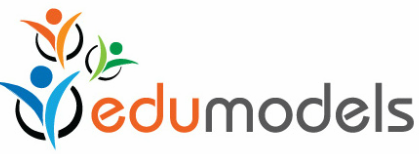
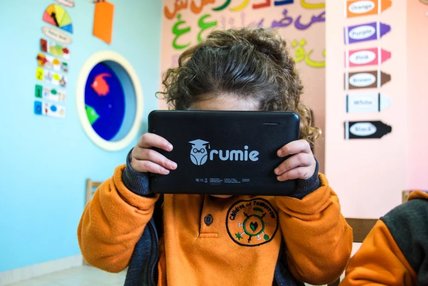
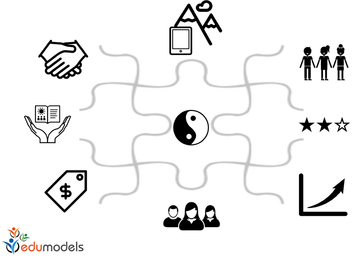

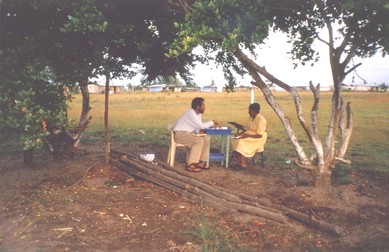
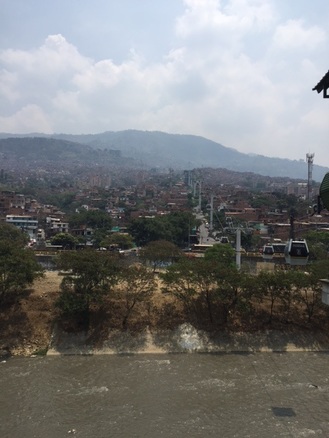
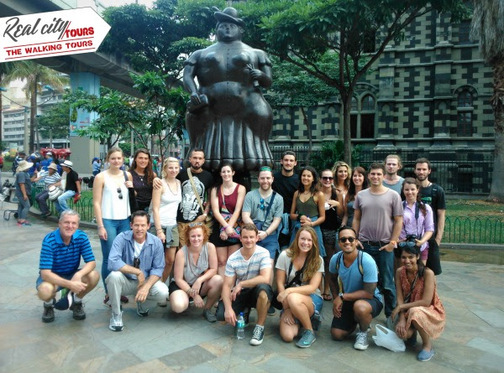
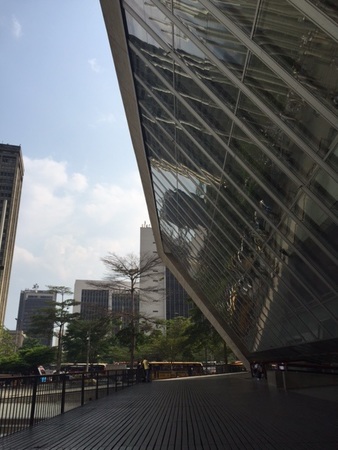
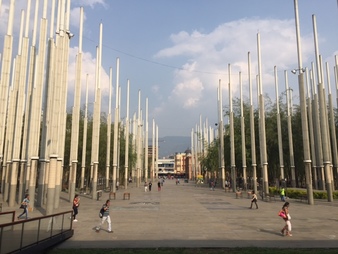
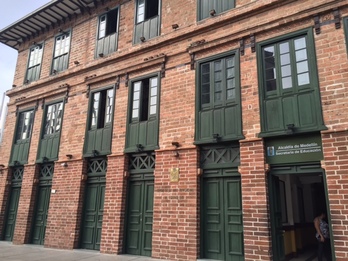
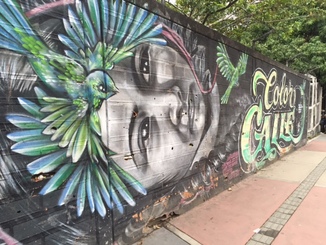
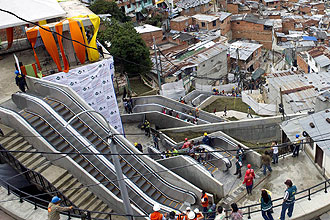
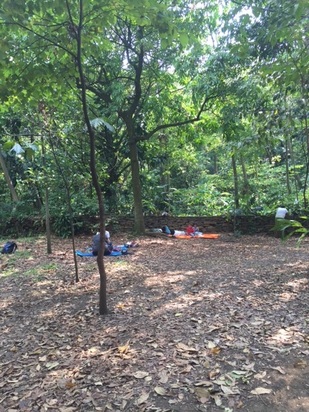
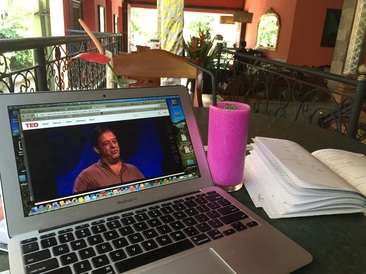
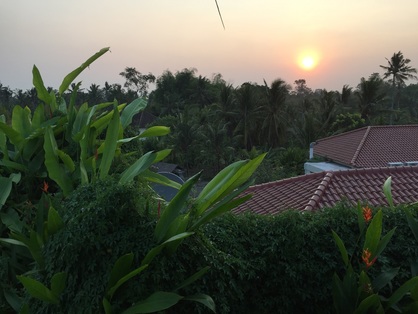
 RSS Feed
RSS Feed
